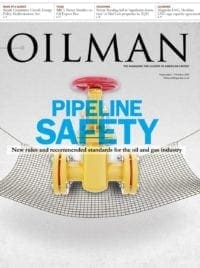The Federal Railroad Administration (FRA) on July 29 issued a final rule to prevent unattended trains that carry crude; ethanol; poisonous by inhalation and toxic by inhalation (TIH) hazardous material; and other highly flammable contents from rolling away.
FRA said that railroad employees who are responsible for securing a train will now be permanently required to communicate with another individual qualified on the railroad’s securement requirements to verify that trains and equipment are properly secured.
Requirements of the rule include:
- A qualified and trained railroad employee must properly secure equipment and verify the securement with a second qualified employee
- Additional communication, including job briefings among crew members responsible for the train securement
- The setting of sufficient handbrakes
- Removal of the train reverser
- The proper use of train air brakes
The final rule will go into effect 60 days after its publication in the Federal Register. Exterior locks on locomotives will be required by March 1, 2017, and must be used when a locomotive has been left unattended.





